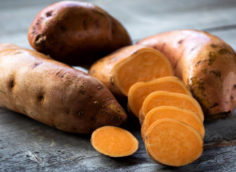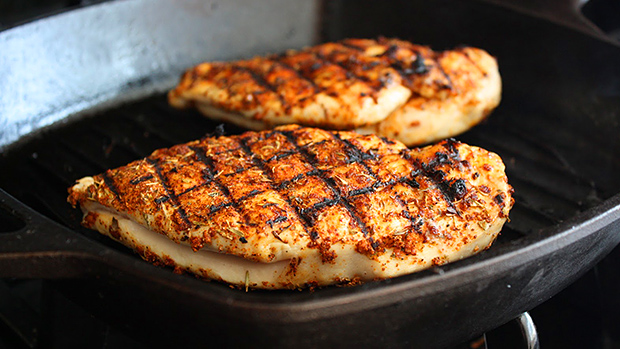The One-Sentence Diet
Here's pretty much everything we know about fat loss in one sentence:
Eat a sub-maintenance number of calories, choose quality foods that keep you satisfied, fueled, healthy, and hormonally in check, and pair your diet with weight training, a little cardio, and a lot of moving around outside the gym (NEPA).
That's it. But yeah, that's actually a lot to unpack, isn't it? We've been unpacking that overstuffed suitcase for over 20 years here at T Nation.
A lot of people lose fat and keep it off forever, but a lot more people struggle for years. So what differentiates them? Who succeeds and who doesn't? A new study out of the University of Vermont may have found the answer: those who self-monitor what they eat will succeed.
The Study
Researchers gathered up 142 people and had them participate in what's called a "behavioral weight control intervention" for six months. They met online once per week with a dietician and were required to keep an online food log.
The participants who lost the most weight were the most consistent at logging their food intake – counting up those consumed calories. Their success wasn't linked to how detailed their food logs were, but rather how many times per day they logged in, and how consistent they were at doing this from month to month.
The researchers concluded that dietary self-monitoring is the number one predictor of fat-loss success.
Fourteen Minutes Per Day
This was also the first major study that looked at how long it takes to keep a food log. In their first month, most subjects took around 23 minutes per day to log their intakes. Once they got used to it, it took them about 14 minutes.
Counting calories and macros may seem tedious, and it definitely can be when you first get started. But today, with apps like My Fitness Pal, it's much easier than it used to be. Long gone are the days of food-stained, yellow legal pads.

Newbies and Pros Have This in Common
It's the most boring advice you'll ever hear: keep a food log. But that advice works best for newbies AND very experienced physique athletes.
Newbies need to do it, at least for a while, because they have no damn idea of how much they're eating. And reading labels and counting macros for a few months is like getting a fast-tracked college degree in nutrition. You'll learn a lot.
Advanced lifters need to log their intakes when they start a strict diet with the hopes of getting either contest-ready or just ripped-to-shreds lean for summer. When your mind starts playing tricks on you 10 weeks into a diet, those hard numbers will set you straight.
There's no guessing and no winging a diet that gets you into the single digits. If it goes into your mouth, write it down. (Insert your own dirty joke here.)
Count and Be Accountable
I do believe that many folks take this too far. Some can become obsessive. But there's little doubt that tracking your food intake works. And, thanks to this study, we know it'll only take 14 minutes a day, maybe even less time with a fancy app.
One thing the researchers may have missed though is accountability. Subjects of this study were held accountable – they knew their dietician could see their food logs.
Sometimes people who struggle with fat loss need (in the beginning at least) some outside accountability. If you could use some of that, feel free to keep your food and workout log here at T Nation in our Training Logs forum.
Reference
- University of Vermont. "Is the most effective weight-loss strategy really that hard? New study shows dietary self-monitoring takes less than 15 minutes a day." ScienceDaily. ScienceDaily, 25 February 2019.





